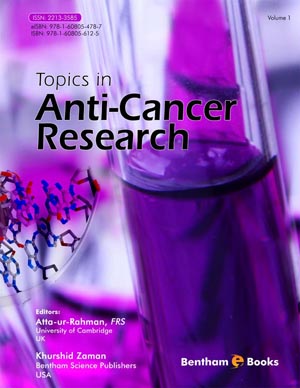Abstract
Acute myeloid leukemia is a heterogeneous group of diseases accounting for 15- 20% of all tumors diagnosed in children under 15 years of age. The past few decades have yielded remarkable improvements in long-term outcomes for children with acute myeloid leukemia. A better risk-group stratification of patients based upon clinical and biologic features, a more effective use of anti-leukemic agents and enormous improvements in supportive care have increased the probability of cure by approximately 60%. The increase in our understanding of the biology of this disease has resulted in the development of molecularly targeted therapies that are potentially more effective and less toxic than the standard approaches. We here review novel molecularly targeted drugs for the treatment of childhood acute myeloid leukemia such as monoclonal antibodies, inhibitors of signalling molecules, proteasome inhibitors and epigenetic agents. For these recently patented agents, we also provide a detailed analysis of the published preclinical data and the clinical trials that have been completed.
Keywords: Azacitidine, bortezomib, decitabine, DNA methyltransferase (DNMT) inhibitors, farnesyltransferase inhibitors, FMS-Like tyrosin kinase 3 (FLT3) inhibitors, gemtuzumab ozogamicin, histone deacetylase (HDAC) inhibitors, lestaurtinib, mammalian target of rapamycin (mTOR) inhibitors, Midostaurin, molecularly targeted therapies, monoclonal antibodies, pediatric acute myeloid leukemia, proteasome inhibitors, quizartinib, sorafenib, tipifarnib, valproic acid, vorinostat.






















